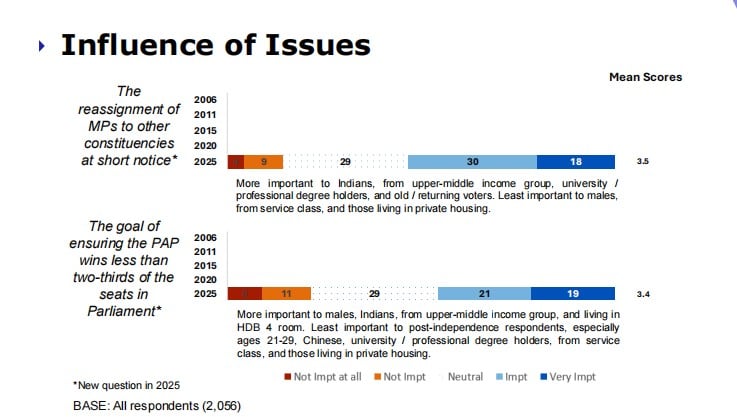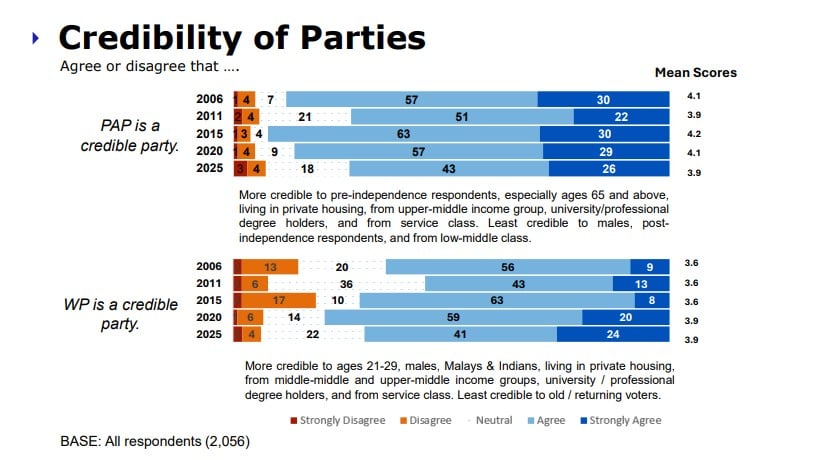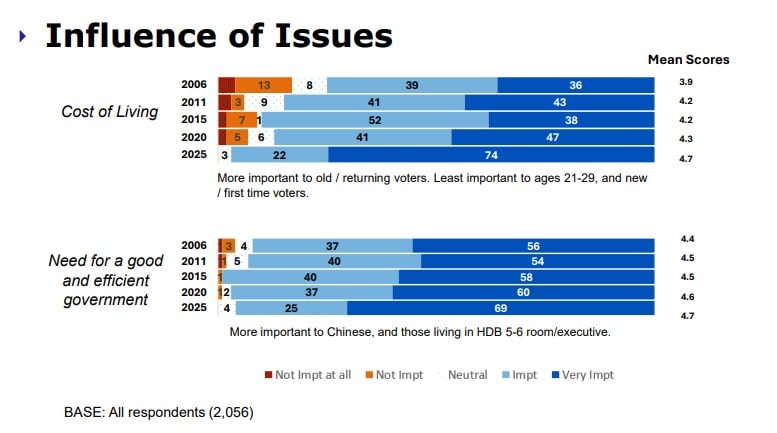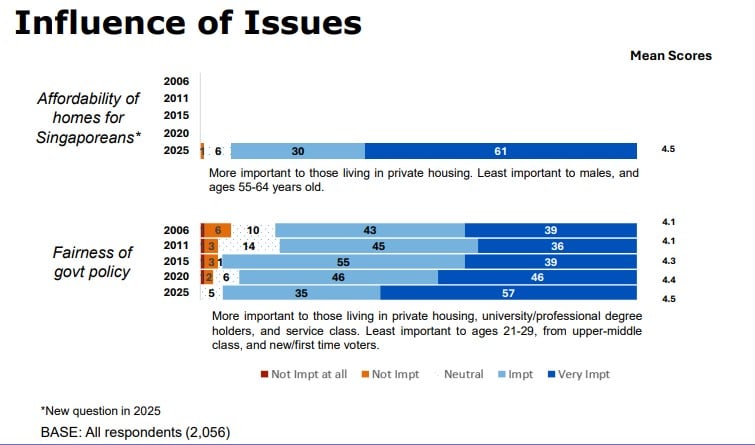SINGAPORE: Leader of the Opposition and Workers’ Party (WP) chief Pritam Singh has urged a more careful interpretation of race-based findings in the Institute of Policy Studies (IPS) Post-Election Survey 2025.
In a Facebook post on 3 September, Singh, who is also a Member of Parliament for Aljunied GRC, highlighted the risks of broad generalisations when presenting race-related survey results.
He noted that such framing could wrongly suggest that all members of a particular racial group share identical political views.
“Instinctively, this cannot be so,” Singh wrote.
He acknowledged that the IPS survey captured some nuance through additional analysis but pointed out that this was included only towards the end of the report, limiting its impact on overall interpretation.
The IPS released its Post-Election Survey 2025 on 2 September, continuing a research series first launched in 2006.
This year’s study drew on responses from 2,056 Singaporean citizens aged 21 and above, polled between 22 May and 1 June, shortly after the general election on 3 May.
In GE2025, the People’s Action Party (PAP) secured 65.57 per cent of the popular vote, giving Prime Minister Lawrence Wong his first electoral mandate as Singapore’s fourth leader.
The survey results therefore provide an early indication of public attitudes towards both the ruling party and the political opposition in this new phase of leadership.
Concerns on race-based assumptions
Singh drew attention to two questions in the survey which highlighted contrasting views across demographic groups.
The first question asked whether ensuring the PAP wins fewer than two-thirds of parliamentary seats should be considered a political goal.
The results showed that this was most strongly supported by males, Indians, upper-middle income respondents, and residents of four-room Housing Board flats.
In contrast, younger respondents aged 21 to 29, Chinese, degree holders, service-class workers, and private housing residents viewed this aim as least important.

The second question explored views on the importance of checks and balances in Parliament.
According to IPS, this was seen as most important by males, older voters aged 65 and above, Indians, professionals, private housing residents, and returning voters.
Conversely, younger Chinese respondents and first-time voters gave it the lowest priority.
Singh questioned how these findings should be understood in relation to the Malay community, since the survey presentation did not break down which groups were most represented in the “least important” responses.
He suggested that greater detail was needed, given Singapore’s multi-racial composition: 75.6 per cent Chinese, 15.1 per cent Malay, 7.6 per cent Indian, and 1.7 per cent Others, based on 2024 figures.
Reference to cluster analysis
Singh also highlighted the importance of the ethnicity-based cluster analysis included in the IPS report, which divided respondents into three groups: “Conservative,” “Pluralist,” and “Swing.”
IPS defined Conservatives as those supporting the political status quo, Pluralists as favouring more pluralism and electoral reform, and Swing voters as individuals whose views straddle both approaches.
This included 45.7 per cent of Chinese, 57.5 per cent of Malays, 53.9 per cent of Indians, and 55.6 per cent of Others.
By comparison, 27.2 per cent of Chinese and 21.6 per cent of Malays were classified as Conservative, while 32 per cent of Indians and 33.3 per cent of Others were placed in the Pluralist category.

Call for more nuanced interpretation
Singh noted that these findings suggest Singapore’s races are not uniformly aligned with Conservative or Pluralist categories, but are instead overwhelmingly “swing.”
He argued that such results indicate a need for more careful and detailed interpretation of race-based survey data.
“It may be more helpful to peruse the survey’s cluster analysis (ethnicity), before interpreting the race-based conclusions. ”
“How many Chinese, Indians and Malays consider themselves to be “conservative”, “swing” or “pluralist”? ” Singh questioned.
Party credibility and voter concerns
Beyond the discussion of race, the IPS survey also assessed party credibility ratings.
The ruling PAP’s credibility rating fell from 4.1 in 2020 to 3.9 in 2025, placing it level with the WP for the first time.
Among respondents, 26 per cent “strongly agreed” the PAP was credible, with 43 per cent agreeing, giving a combined 69 per cent.
A further 18 per cent were neutral, while 7 per cent disagreed or strongly disagreed.
The WP recorded similar numbers: 24 per cent “strongly agreed” it was credible, 41 per cent agreed, and 22 per cent were neutral.
Its mean credibility score remained unchanged at 3.9, but the convergence with the PAP marked a significant shift in public perception compared with 2020.

Cost of living remains top voter issue
The survey also identified cost of living as the foremost concern among voters in GE2025.
Seventy-four per cent of respondents rated it “very important” — the highest proportion recorded in the history of IPS’s post-election surveys, and a sharp 27 percentage point rise from 2020.

The concern was particularly pronounced among older and returning voters, while first-time voters aged 21 to 29 were less affected.
Efficient governance ranked second as a voter priority, with 69 per cent rating it “very important.” This issue was especially significant among Chinese voters and residents of larger Housing Board flats.
For the first time, housing affordability was introduced as a survey item, ranking third.
Sixty-one per cent of respondents considered it “very important,” with the strongest concerns voiced by private housing residents.

The post Pritam Singh calls for deeper analysis of race-based findings in IPS post-GE2025 survey appeared first on The Online Citizen.


